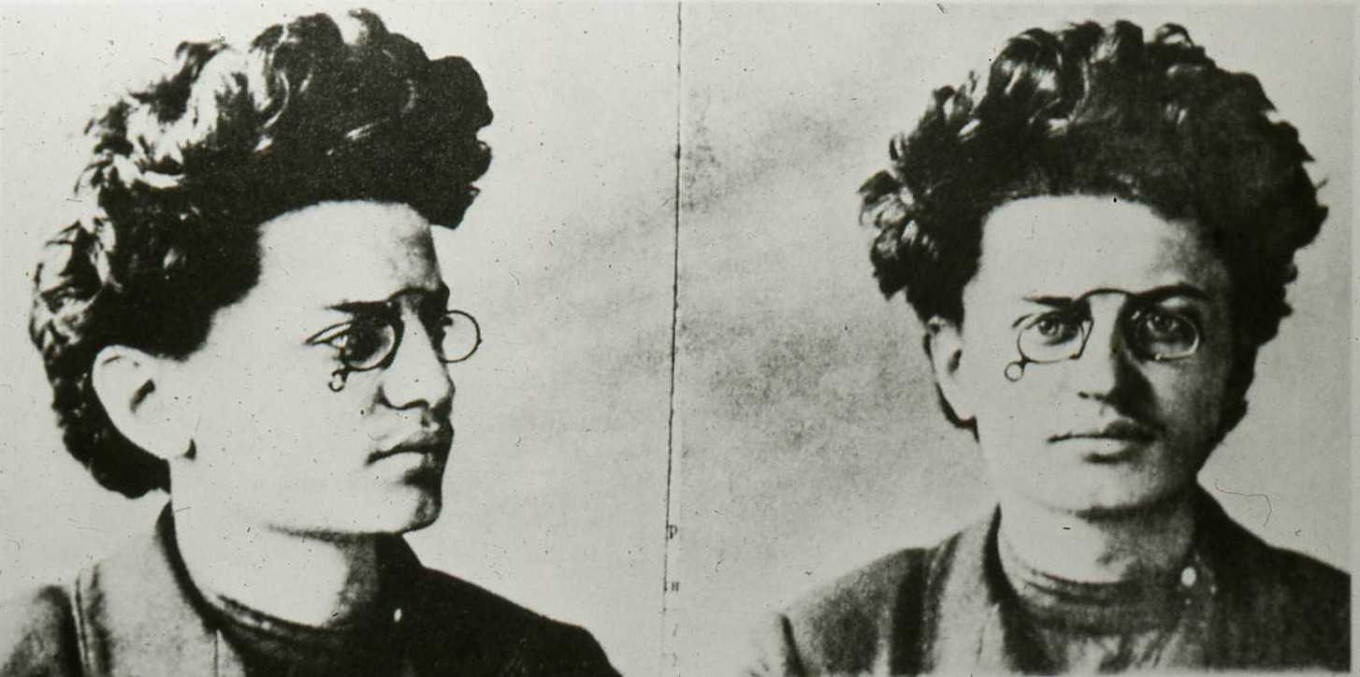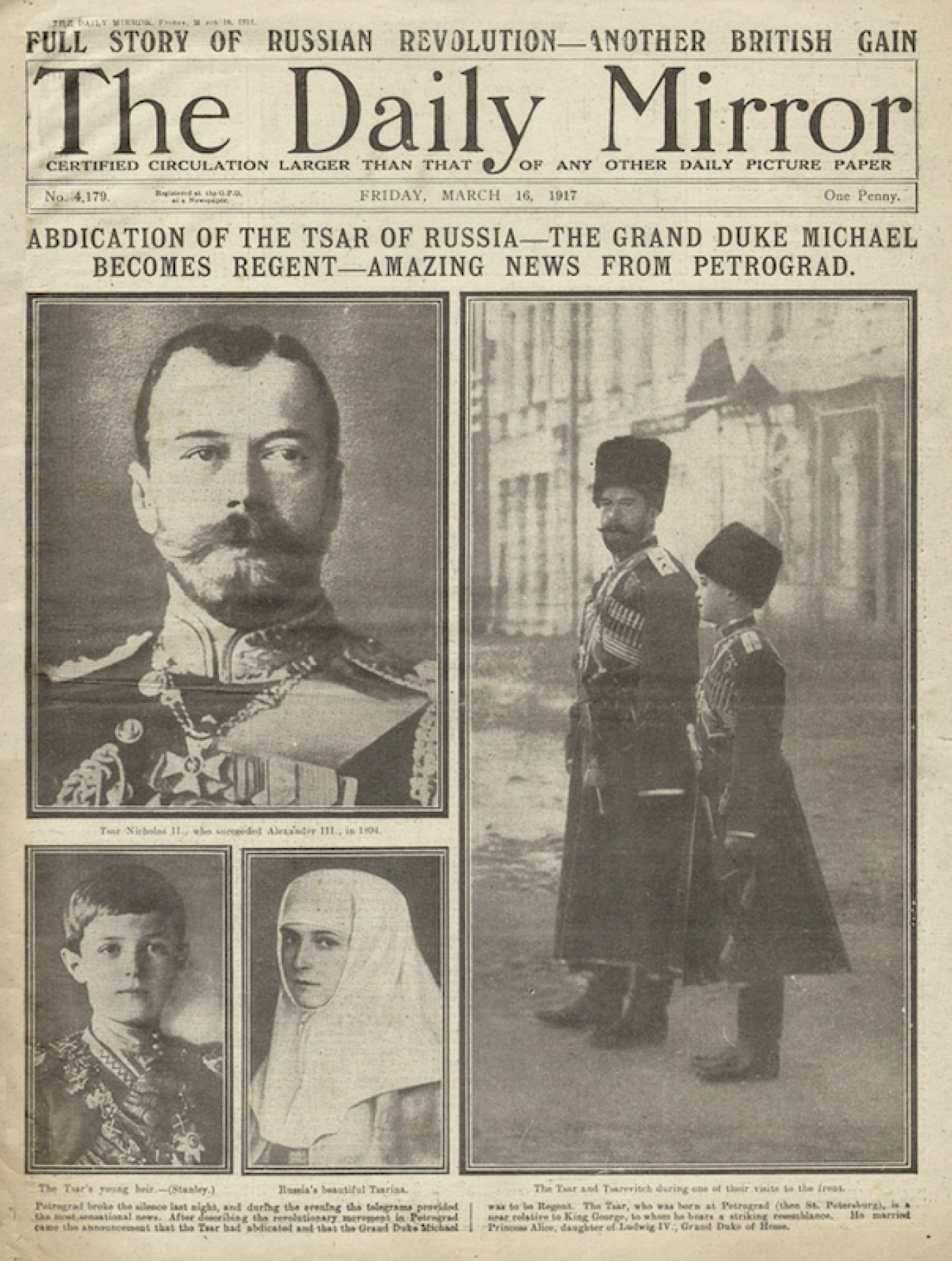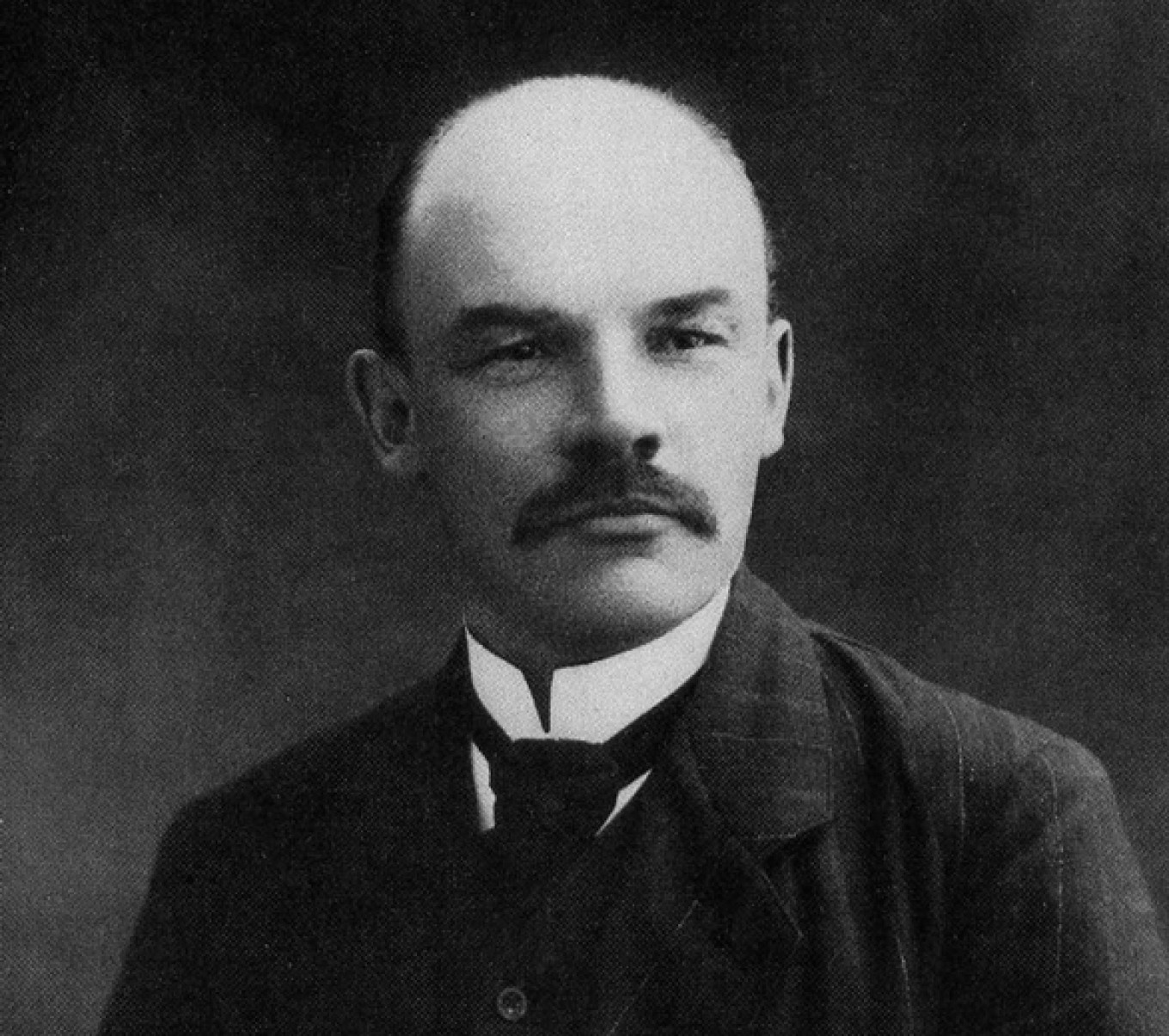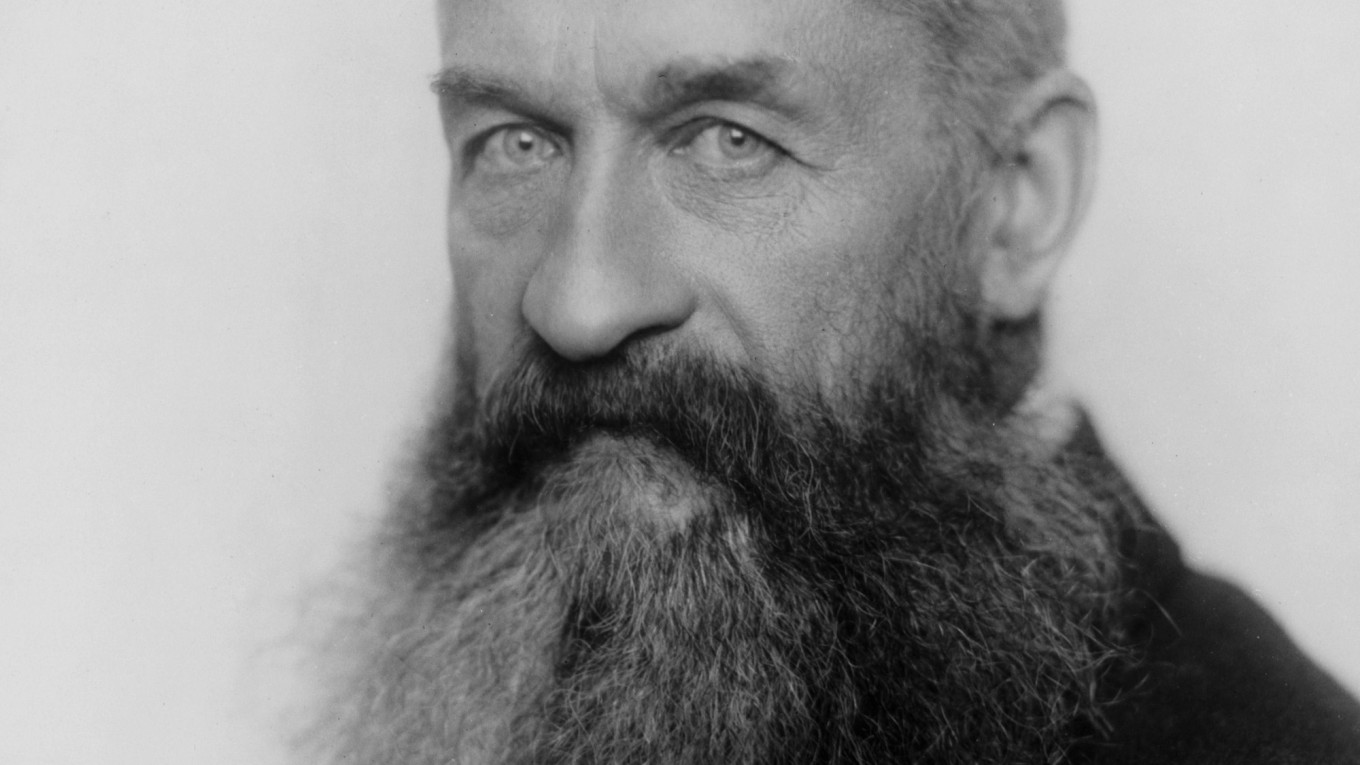April 4
Trotsky is trying to get back to Europe after his enforced journey to the West. But he is unexpectedly arrested by British officers.
British officers, accompanied by bluejackets, came aboard the Chrislianiafiord and demanded, in the name of the local admiral, that I, my family, and five other passengers leave the boat. We were assured that the whole incident would be cleared up in Halifax.
We declared that the order was illegal and refused to obey, whereupon armed bluejackets pounced on us, and amid shouts of "shame" from a large part of the passengers, carried us to a naval cutter, which delivered us to Halifax under the convoy of a cruiser. While a group of sailors were holding me fast, my older boy ran to help me and struck an officer with his little fist. "Shall I hit him again, papa?" he shouted. He was eleven then, and it was his first lesson in British democracy.
Prince Georgy Lvov, the head of the Provisional government, is a real sophisticated Russian liberal. His government has already abolished the death penalty and is now going to let women participate in elections for the first time in Russian history. The U.S. and UK are to follow Russia in 1920 and 1918.
If we’re going to have universal suffrage, what’s the rationale for preventing women who wish to participate in elections from doing so? Our electoral law is being developed. In its final form, it is contingent on the total composition of the provisional government. But I’m for the participation of women.

April 6
Trotsky’s troubles continue: he was detained in Canada with no prospects of being released. Check out what life there looks like.
The Amherst concentration camp was located in an old and very dilapidated iron- foundry that was confiscated from its German owner. The sleeping bunks were arranged in three tiers, two deep, on each side of the hall. About eight hundred of us lived in these conditions. The air in this improvised dormitory at night can be imagined. Men hopelessly dogged the passages, elbowed their way through, lay down or got up, played cards or chess. Many of them practised crafts, some with extraordinary skill. I still have, stored in Moscow, some things made by Amherst prisoners. And yet, in spite of the heroic efforts of the prisoners to keep themselves physically and morally fit, five of them had gone insane. We had to eat and sleep in the same room with these madmen.

April 7
Arthur Conan Doyle meets with Lloyd George to discuss the Russian revolution (and have a breakfast).
I find in my diary that the prime minister, Mr. Lloyd George, invited me to breakfast in April 1917. Some third person was, I understand, to have been present, but he did not arrive, so that I found myself alone in the classic dining room of No. 10, Downing Street, while my host was finishing his toilet. Presently he appeared, clad in a grey suit, smart and smiling, with no sign at all that he bore the weight of the great European War upon his shoulders.
Nothing could have been more affable or democratic, for there was no servant present, and he poured out the tea, while I, from a side table, brought the bacon and eggs for both. He had certainly the Celtic power of making one absolutely at one's ease, for there was no trace at all of pomp or ceremony — just a pleasant, smiling, grey-haired but very virile gentleman, with twinkling eyes and a roguish smile. No doubt there are other aspects, but that is how he presented himself that morning.
He was much excited about the revolution in Russia, news of which had only just come through. The Guards had turned, and that meant that all had turned. The Tsar was good but weak. The general character and probable fate of the Tsarina were not unlike those of Marie Antoinette — in fact, the whole course of events was very analogous to the French Revolution. "Then it will last some years and end in a Napoleon," said I. He agreed. The revolt, he said, was in no sense pro-German. The whole affair had been Byzantine.

April 9
Lenin’s famous trip from Zurich to Petrograd has begun. The Bolsheviks reached an agreement with Germany: the government will let them go through their territory and the Bolsheviks will promote an immediate peace treaty as soon as they get to Russia. Here is Grigory Zinoviev’s account, Lenin’s close friend and companion:
We are going to travel through Germany. Whatever happens, happens, but it is clear that Vladimir Ilyich needs to be in Petrograd as soon as possible. After we have already entered the carriage car in order to travel to the Swiss border, a small group of Mensheviks and Socialist-Revolutionaries have staged something like a hostile demonstration.
At the last moment, literally a couple of minutes before the train departure, comrade Ryazanov, in great agitation, calls the author of these lines aside and says, “Vladimir Ilyich got carried away and forgot about the dangers; you are more cool-headed. Understand that this is madness. Please persuade Vladimir Ilyich to abandon the plan of travelling through Germany.”
A Message from The Moscow Times:
Dear readers,
We are facing unprecedented challenges. Russia's Prosecutor General's Office has designated The Moscow Times as an "undesirable" organization, criminalizing our work and putting our staff at risk of prosecution. This follows our earlier unjust labeling as a "foreign agent."
These actions are direct attempts to silence independent journalism in Russia. The authorities claim our work "discredits the decisions of the Russian leadership." We see things differently: we strive to provide accurate, unbiased reporting on Russia.
We, the journalists of The Moscow Times, refuse to be silenced. But to continue our work, we need your help.
Your support, no matter how small, makes a world of difference. If you can, please support us monthly starting from just $2. It's quick to set up, and every contribution makes a significant impact.
By supporting The Moscow Times, you're defending open, independent journalism in the face of repression. Thank you for standing with us.
Remind me later.






